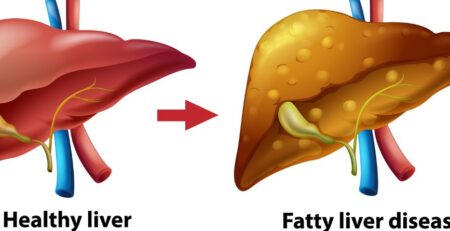Personal Responsibility: The Key to Lasting Health and Wellness
Let’s be honest – how many of us have tried countless diet plans, workout routines, and quick-fix solutions, only to find ourselves right back where we started? The truth is, in today’s world, we’re surrounded by so many options, that it’s easy to get lost. But here’s what I want you to know: none of these things will work unless we take personal responsibility.
We can’t expect a meal plan to fix what exercise can address. Just like we can’t rely on a supplement to do the work that better sleep or less stress would naturally take care of. Real health is holistic. It’s not about finding the next fad, but about recognizing that we have a role to play in our own wellness. No one else can take responsibility for what we eat, how we move, or how we manage stress – that’s entirely on us.
So today, let’s shift the focus back to where it belongs: personal responsibility. This is where true transformation happens, and in this article, I’m going to walk you through how we can start applying this mindset to all areas of health—diet, exercise, stress management, and more.
The Role of Personal Responsibility in Health
Here’s the thing—lasting health starts with us. It’s easy to rely on external solutions like diets, workout plans, or supplements, expecting them to magically fix all our problems. But in reality, no external plan can do what personal responsibility can.

Look, a diet plan can’t fix your lack of movement, just like exercise can’t fix the damage done by a poor diet. And popping a pill won’t erase the effects of chronic stress or sleepless nights. A lot of us are stuck in this loop, thinking a supplement or a new health trend will solve everything, but the truth is, real change starts when we take ownership of our actions.
It’s about taking control of our habits—what we eat, how much we move, how we manage our stress—and being mindful of them every single day. That’s where the transformation happens. It’s not about searching for a shortcut; it’s about recognizing that lasting health is built on personal responsibility. No one else can do it for you.
Matching the Right Solution to the Right Problem
One of the biggest mistakes we make is trying to solve our health challenges with the wrong tools. We get frustrated when a diet doesn’t fix our overeating habits or when a supplement doesn’t magically give us glowing skin, but the issue isn’t with these tools—it’s how we’re using them.
Take overeating, for example. No matter how perfect your diet plan is, it won’t solve the underlying behavior of eating too much. That’s where discipline and mindfulness come in. You have to become aware of why you’re overeating in the first place and tackle that issue head-on.

Or think about poor sleep. A sleeping pill may help you in the short term, but the real solution lies in addressing your circadian rhythm, reducing stress, and improving your sleep environment.
Even with skin problems, no amount of collagen or expensive skincare products will compensate for the damage caused by a poor diet. If you’re loading up on junk food, your skin’s going to show it.
The key is to match the right solution with the right problem. Quick fixes may offer some relief, but real, sustainable health comes when you address the root cause with the right actions. Don’t waste time chasing magic pills—focus on fixing the underlying issue with the right solution.
Common Health Problems and Misguided Solutions
Let’s talk about some common health issues where we often get stuck applying the wrong solutions. Take weight gain, for example. Many people jump into extreme diets, cutting out entire food groups or starving themselves. But the real issue might not be the food itself—it could be emotional eating, stress, or simply a lack of physical activity. No diet will fix those deeper behaviors.
Then there’s chronic stress. It’s tempting to seek out medications to calm the nerves, but often we overlook natural solutions like mindfulness, meditation, or even managing our time better. The answer isn’t always in a pill—it’s in changing how we handle daily stressors.

And what about that constant lack of energy? People turn to caffeine or energy drinks, but the true solution might be simpler: better sleep, more balanced meals, and getting outside for a walk. These quick fixes like caffeine only mask the deeper problem.
By not applying the right solution to the root issue, we stay in this frustrating cycle of seeking quick fixes. Real, lasting health requires looking beyond the band-aid solutions and addressing what’s really going on.
Taking Control: How to Cultivate Personal Responsibility
So how do we take control and cultivate that personal responsibility for our health? It starts with a little bit of honesty. We need to ask ourselves, “Am I applying the right solution to the right problem?” Is that extreme diet really what I need, or do I need to address my emotional eating? Is my lack of energy solved with caffeine, or do I need more sleep?
One way to start is by journaling. Keep track of your habits—what you eat, how you move, how you sleep. Over time, you’ll start seeing patterns that reveal areas of imbalance. You can also work on affirmations to help you reinforce positive habits.

Another powerful tool is mindfulness. Becoming aware of our cravings, stress triggers, or moments of emotional eating can help us pause and make better decisions in those moments.
And don’t forget, it’s about making small, manageable changes. You don’t have to fix everything overnight. Build discipline by tackling one habit at a time—whether it’s reducing sugar, going for a daily walk, or adding an extra hour of sleep.
Personal responsibility is empowering. It’s not about blaming yourself—it’s about recognizing that you have the power to make changes, one step at a time.
The Power of Consistency in Health
When it comes to achieving long-term health, it’s not about being perfect—it’s about being consistent. Far too often, people find solutions that work for them, whether it’s a sleep technique or an exercise routine, but they stop once they see some results. It’s easy to think you’re “fixed,” only to fall back into old habits and lose the progress you’ve made.
Consistency in small actions is where the magic happens. Eating clean 80% of the time, moving your body daily, and managing stress regularly may not seem like huge accomplishments individually, but over time, they build into massive, lasting changes. Remember, it’s those daily choices that compound to shape your long-term health.
“It’s not about perfection, but about showing up for yourself every day, making the conscious choice to do better.”
- Luke Coutinho
To stay consistent, set daily intentions for movement, nutrition, and emotional well-being. Hold yourself accountable by tracking your progress at the end of each week. And don’t forget to celebrate small wins—whether it’s sticking to your diet for the day or doing 10 minutes of movement, rewarding yourself for those victories will keep you motivated.
Practical Steps for Addressing Common Health Problems
Let’s break down some simple, actionable tips for common health problems:
- For Overeating: Practice mindful eating—remove distractions like phones or TV during meals and focus on your food. Build self-awareness around emotional triggers for eating and address those head-on.
- For Poor Sleep: Stick to a consistent bedtime, limit screen time at least an hour before bed, and create a calming pre-sleep routine to signal your body it’s time to rest.
- For Chronic Stress: Make stress management part of your daily routine. Try yoga, deep breathing exercises, or simply take 10 minutes to unplug and relax.
- For Skin Issues: Focus on nutrient-dense foods—especially fruits, veggies, and healthy fats—and reduce your intake of processed junk food.
By taking responsibility for your health and applying the right solutions, you can break free from the cycle of quick fixes and experience real, lasting change.
Take Ownership of Your Health and Success
At the end of the day, your health is in your hands. It takes real guts, integrity, and self-respect to acknowledge that you are the one responsible for your actions, your habits, and ultimately your success. There’s no shortcut, no magic pill, and no one-size-fits-all solution. The most powerful transformation happens when you take ownership of your health and embrace personal responsibility.
Strong leaders don’t shy away from accountability—they stand tall, make mistakes, learn from them, and keep pushing forward. That’s the hallmark of true strength.
So today, I challenge you to take one step toward accountability. Own your actions, and you’ll begin to see the ripple effect of those small, consistent wins. Your health, your success—it’s all within your control.
Ready to take the first step towards self-mastery?
Start small, with one manageable change today.
Know more about our book, Small Wins Everyday.
Set up a one-on-one consultation with our integrative team by reaching out to us at
1800 102 0253 or write to us at consults@lukecoutinho.com.
Disclaimer: Always make an informed choice. Keep your healthcare provider in the loop before trying anything new, especially if you are going through a medical condition or are on medications.
|
From a pimple to cancer, our You Care Wellness Program helps you find a way Talk to our integrative team of experts today 18001020253 |










Leave a Reply